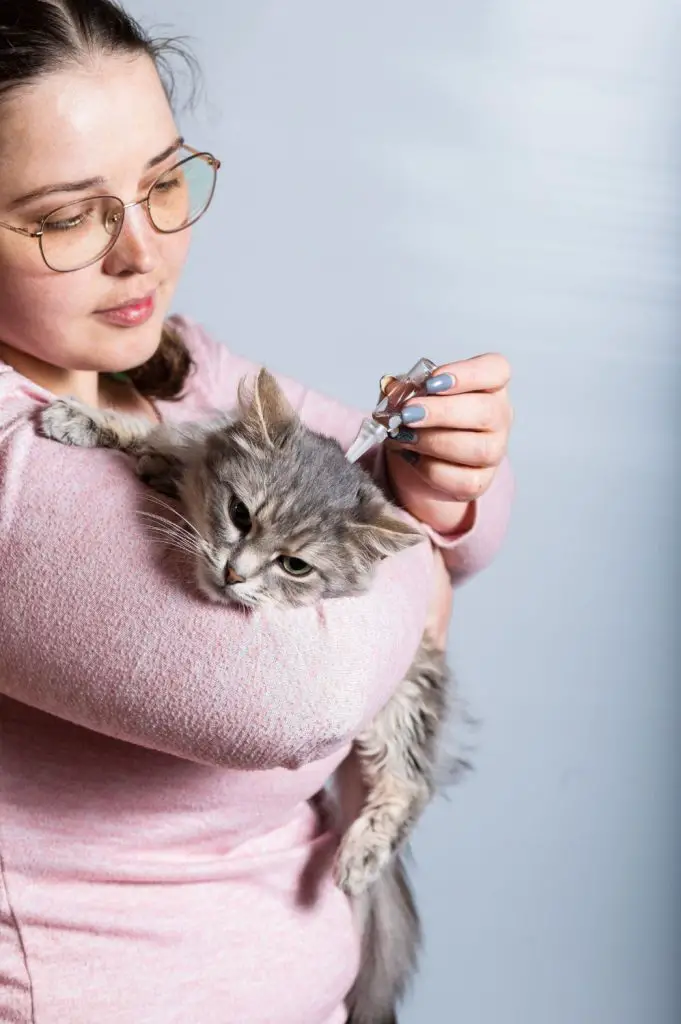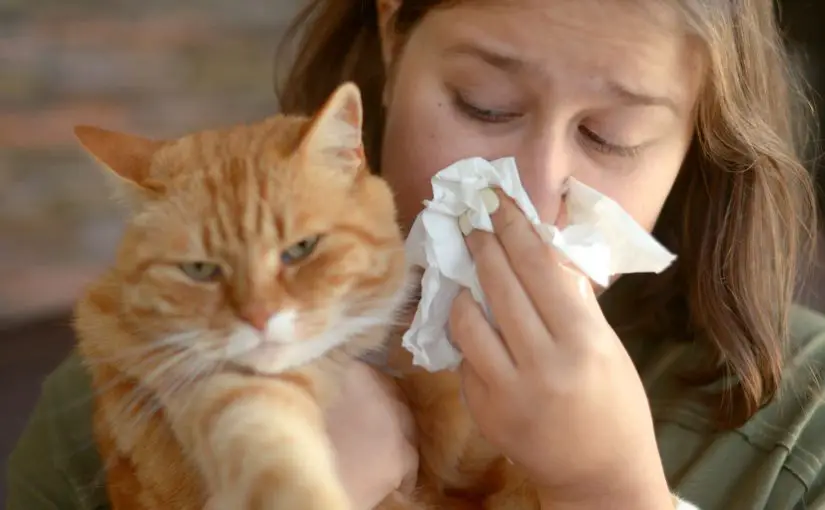Table of Contents
Can Air Purifiers Help with Cat Allergies?
Using an air purifier can be an effective way to reduce cat allergy symptoms for some people. The key is finding one that is designed to trap cat allergens specifically.
How Do Cat Allergies Work?
People with cat allergies are allergic to a protein called Fel d 1, which is found in cat dander (skin flakes), saliva, and urine. When a cat sheds or grooms itself, Fel d 1 particles get released into the air. When someone with a cat allergy breathes in these particles, it can trigger an allergic reaction.
Common cat allergy symptoms include:
- Sneezing
- Itchy, watery eyes
- Runny nose
- Nasal congestion
- Itchy throat
- Coughing
- Facial pressure and pain
How Air Purifiers Help
Air purifiers are designed to filter out pollutants, allergens, and particles from the air. To help with cat allergies, you need an air purifier that uses a HEPA filter.
HEPA stands for “high efficiency particulate air.” The key is that HEPA filters are designed to capture very small particles like cat dander that can trigger allergies.
A true HEPA filter removes at least 99.97% of particles as small as 0.3 microns. For reference, a human hair is about 50-70 microns wide. So HEPA filters can trap tiny cat allergen particles that would otherwise float right by standard filters.
 Tips for Choosing an Air Purifier for Cat Allergy Relief
Tips for Choosing an Air Purifier for Cat Allergy Relief
Here are some tips for picking an effective air purifier to reduce cat allergy symptoms:
- Look for a True HEPA filter – Make sure any model you’re considering uses a true HEPA filter, not just a standard HEPA-type filter.
- Pay attention to room size – Match the purifier’s recommended room size to the actual size of the room you’ll use it in.
- Aim for a high Clean Air Delivery Rate (CADR) – CADR measures volume of filtered air. Look for a high smoke CADR as that tests for fine particles like pet dander.
- Consider a model with an activated carbon filter – Activated carbon helps remove odors and gases.
- Pick a low noise level – Quieter models are less distracting.
It’s also best to run an air purifier continuously to keep air as allergen-free as possible.
Will an Air Purifier Completely Eliminate Cat Allergy Symptoms?
For some people with mild cat allergies, using an air purifier in rooms where they spend time with the cat can significantly reduce allergy symptoms. But air purifiers are not a cure-all.
Some people have such severe cat allergies that air purifiers, even high-end models, are not enough to prevent reactions. This is especially true if the person touches the cat and gets dander or saliva on their hands.
Air purifiers also won’t eliminate symptoms if the cat sleeps on furniture, clothing, or bedding and leaves behind dander and allergens. And they provide localized help – if you spend time in parts of the home without an air purifier running, you may still have allergy issues.
For severe cat allergies, medications or allergy shots may be needed along with thorough cleaning and air purification.
Should You Get an Air Purifier for Cat Allergies?
An air purifier can be a useful part of an allergy management plan. When combined with keeping the cat out of bedrooms, regular vacuuming and washing of linens, and laundering clothing after contact with the cat, an air purifier can help provide symptom relief.
Just be sure to choose one with the right specs for your needs. Focus on true HEPA filtration, appropriate room size, and a high Clean Air Delivery Rate. This can provide cleaner air and potentially less allergy suffering when living with a feline friend.
Frequently Asked Questions
Can air purifiers completely eliminate cat allergies?
No, air purifiers cannot completely eliminate cat allergies. They can help reduce airborne cat dander and allergens, but severe allergy sufferers may still react even with air purification.
Do I need a separate air purifier for each room with the cat?
It depends on your budget and the layout of your home. One purifier can work for adjacent rooms if you keep the doors open. Multiple units for separate areas of the home are ideal for the best coverage.
Where should I place an air purifier for cat allergies?
Focus on purifying the air in rooms where you spend the most time with the cat, like the living room or family room. Also put one in your bedroom since you don’t want the cat in there.
Can air purifiers help with pet hair and dander?
Yes, a HEPA air purifier can trap pet dander, hair, and other allergens so they don’t circulate in the air you breathe.
Should I run an air purifier all the time for cat allergies?
It’s best to run an air purifier continuously so it is always working to reduce allergen levels. You can use a timer or auto mode to save energy when you are not home.
Do I still need to vacuum and clean if using an air purifier?
Yes, you should still regularly vacuum and dust surfaces in rooms the cat accesses. Air purifiers filter the air but don’t eliminate allergens on surfaces.
Can air purifiers help with cat dander and urine smells?
Air purifiers with activated carbon filters can help reduce odors from cat dander, urine, and litter boxes. Models with UV-C light also help.
How often should I change the filter in an air purifier for pets?
It depends on use, but you should plan to change the HEPA filter at least every 6-12 months. Pre-filters can be vacuumed and changed more often if they look dirty.
The Bottom Line
Using a high-quality HEPA air purifier can be helpful for managing cat allergies. While not a cure, it can meaningful reduce allergy symptoms when combined with keeping the cat out of bedrooms, washing fabrics, and cleaning. Focus on HEPA filtration, room size, and high air delivery rates when choosing a model.

